It's clear to me that something has to be done about my books. They are spilling out of the bookshelves Allen built for me. I am going to need to make some choices. It is clear to me that over the past few years my reading needs have changed, and many of my old books are going to have to go. While I was working on my first novel, I surrounded myself with first novels. They inspired me and gave me a sense of order regarding what I wanted to accomplish. These first novels are no longer needed. Now I'm more interested in myths, fairytales, and contemporary fiction by some of the established writers that I never got around to (such as Saul Bellow).
Some of the reference books can be taken to my office. After doing some thinning out and rearranging there, I found I have a whole shelf for wayward books. But many of my books are going to need to either be given away or taken to the Goodwill or the used bookstore. What a job this is going to be. I am reminded of a poem Donald Hall wrote after the death of his wife, Jane Kenyon. In it, he spoke of gathering books that had been bought with such high hopes, many never read, and boxing them up to discard them. I feel the same sadness and hopelessness as I go about this task, but I know I'll feel better when I've carted off many of my books and created around me the library that I need right now.
Saturday, December 30, 2006
Tuesday, December 26, 2006
Shedding Some Light
 Photo: One of Philip Guston's lightbulb drawings. As a child, Guston used to hide in his closet and draw pictures. Doing so calmed him and made him happy. The lightbulb image is a manifestation from his closet. He replicated the lightbulb image in several paintings and drawings throughout his lifetime.
Photo: One of Philip Guston's lightbulb drawings. As a child, Guston used to hide in his closet and draw pictures. Doing so calmed him and made him happy. The lightbulb image is a manifestation from his closet. He replicated the lightbulb image in several paintings and drawings throughout his lifetime.Christmas Vacation is always a great time for teachers to get caught up on their reading. I have started Herzog by Saul Bellow. I finished Cormac McCarthy's The Road in one long evening, and it was excellent: eloquent, disturbing, and archetypal. The plot is very simple: a man and his son try to survive after an apocalyptic disaster. I love the stripped down mechanism by which McCarthy tells the story. It isn't quite as blunt as Hemingway because McCarthy enjoys the occasional metaphoric flourish, but one could draw parallels to Hemingway's "Big Two-Hearted River" or perhaps even Crane's "Blue Hotel" or "The Open Boat." McCarthy, though, doesn't exactly fit into the framework of realism that Hemingway and Crane do. McCarthy seems to be exploring the advantages and disadvantages of self-sufficiency vs. community.
I also reread one of the texts I'll be using in my seminar next semester, Gregory Orr's Poetry As Survival. Orr experienced a psychic wound as a child when he accidentally killed his brother in a hunting accident.
In Poetry As Survival, Orr writes: "To say that I was horrified and traumatized by the event is only to state the obvious." The point, says Orr, is that his writing got him beyond the horror and the paralysis.
Of course, it isn't enough to have a psychic wound and to write about it--great writing comes about only through a careful and (usually) long apprenticeship, Orr explains.
The first half of Poetry As Survival explains the psychology of writing and healing. Orr's writing is thoughtful and engaging. He has the ability to explain complex concepts in a way that is easy for the reader to understand. For instance, in explaining the "self," Orr writes: "The self, in my image, is like a tiny island in a vast sea of chaos, and it's also like those conch shells you lift to your ear to hear the ocean's roar: the chaos of the sea is inside the self also."
Throughout, Orr seeks to explain how writing can give order to the seemingly chaotic life.
The second half of the book deals with writers of the personal lyric, focusing on early practitioners like Blake, Wordsworth, and Whitman. In addition, Orr writes of several poets as being his "heroes." In doing so, amazingly, he humanizes them, makes them real people rather than the marble statues they seem to be in poetry anthologies.
Other poets Orr discusses are: Plath, Roethke, Dickinson, Keats, and Wilfred Owen.
One of my favorite revelations in the book was Orr's brief discussion of the Polish poet Tadeusz Rozewicz, whose "In the Middle of Life" portrays, in Orr's words, "a shell-shocked, traumatized veteran who must relearn everything from scratch and through elementary incantatory repetitions." Here is a selection from Rozewicz's poem:
After the end of the world
after my death
I found myself in the middle of life
I created myself
constructed life
people animals landscapes
this is a table I was saying
this is a table
on the table are lying bread a knife
the knife serves to cut the bread
people nourish themselves with bread
one should love man
I was learning by night and day
what one should love
I answered man
this is a window I was saying
this is a window
beyond the window is a garden
in the garden I see an apple tree
the apple tree blossoms
the blossoms fall off
the fruits take form
they ripen my father is picking up an apple
that man who is picking up an apple
is my father
I was sitting on the threshold of the house
that old woman who
is pulling a goat on a rope
is more necessary
and more precious
than the seven wonders of the world
whoever thinks and feels
that she is not necessary
he is guilty of genocide ...
It is intriguing how that last stanza has parallels to McCarthy's The Road. The great battle in The Road is how to keep your humanity in the face of overwhelming loss, fear, and senseless killing. The Road is not a Science Fiction tale: it really is a book about how we deal with life every day, the extent to which we allow ourselves to become genocidal in our thoughts--whoever thinks and feels/that she is not necessary/he is guilty of genocide. So it shouldn't be surprising that Rozewicz's poetry and McCarthy's book would say some of the same things: Rozewicz was writing in the aftermath of WWII horrors.
One of the reasons I want to do the seminar is because courses in literary criticism erase from consideration the writer's original and personal motivations for writing. I do think literary criticism is important, but there needs to be balance. Too often, I think, works are treated as cadavers, opened and probed objectively on a slab.
Orr, in contrast, brings poets and their poems fully alive. The experience of reading this book was thoroughly rewarding. Gregory Orr's Poetry As Survival is a great companion to DeSalvo's Writing as a Way of Healing: How Telling Our Stories Transforms Our Lives.
By the way, if anyone runs across a poetry collection by Tadeusz Rozewicz, I'd appreciate knowing about it. I would love to read more of his work.
I also reread one of the texts I'll be using in my seminar next semester, Gregory Orr's Poetry As Survival. Orr experienced a psychic wound as a child when he accidentally killed his brother in a hunting accident.
In Poetry As Survival, Orr writes: "To say that I was horrified and traumatized by the event is only to state the obvious." The point, says Orr, is that his writing got him beyond the horror and the paralysis.
Of course, it isn't enough to have a psychic wound and to write about it--great writing comes about only through a careful and (usually) long apprenticeship, Orr explains.
The first half of Poetry As Survival explains the psychology of writing and healing. Orr's writing is thoughtful and engaging. He has the ability to explain complex concepts in a way that is easy for the reader to understand. For instance, in explaining the "self," Orr writes: "The self, in my image, is like a tiny island in a vast sea of chaos, and it's also like those conch shells you lift to your ear to hear the ocean's roar: the chaos of the sea is inside the self also."
Throughout, Orr seeks to explain how writing can give order to the seemingly chaotic life.
The second half of the book deals with writers of the personal lyric, focusing on early practitioners like Blake, Wordsworth, and Whitman. In addition, Orr writes of several poets as being his "heroes." In doing so, amazingly, he humanizes them, makes them real people rather than the marble statues they seem to be in poetry anthologies.
Other poets Orr discusses are: Plath, Roethke, Dickinson, Keats, and Wilfred Owen.
One of my favorite revelations in the book was Orr's brief discussion of the Polish poet Tadeusz Rozewicz, whose "In the Middle of Life" portrays, in Orr's words, "a shell-shocked, traumatized veteran who must relearn everything from scratch and through elementary incantatory repetitions." Here is a selection from Rozewicz's poem:
After the end of the world
after my death
I found myself in the middle of life
I created myself
constructed life
people animals landscapes
this is a table I was saying
this is a table
on the table are lying bread a knife
the knife serves to cut the bread
people nourish themselves with bread
one should love man
I was learning by night and day
what one should love
I answered man
this is a window I was saying
this is a window
beyond the window is a garden
in the garden I see an apple tree
the apple tree blossoms
the blossoms fall off
the fruits take form
they ripen my father is picking up an apple
that man who is picking up an apple
is my father
I was sitting on the threshold of the house
that old woman who
is pulling a goat on a rope
is more necessary
and more precious
than the seven wonders of the world
whoever thinks and feels
that she is not necessary
he is guilty of genocide ...
It is intriguing how that last stanza has parallels to McCarthy's The Road. The great battle in The Road is how to keep your humanity in the face of overwhelming loss, fear, and senseless killing. The Road is not a Science Fiction tale: it really is a book about how we deal with life every day, the extent to which we allow ourselves to become genocidal in our thoughts--whoever thinks and feels/that she is not necessary/he is guilty of genocide. So it shouldn't be surprising that Rozewicz's poetry and McCarthy's book would say some of the same things: Rozewicz was writing in the aftermath of WWII horrors.
One of the reasons I want to do the seminar is because courses in literary criticism erase from consideration the writer's original and personal motivations for writing. I do think literary criticism is important, but there needs to be balance. Too often, I think, works are treated as cadavers, opened and probed objectively on a slab.
Orr, in contrast, brings poets and their poems fully alive. The experience of reading this book was thoroughly rewarding. Gregory Orr's Poetry As Survival is a great companion to DeSalvo's Writing as a Way of Healing: How Telling Our Stories Transforms Our Lives.
By the way, if anyone runs across a poetry collection by Tadeusz Rozewicz, I'd appreciate knowing about it. I would love to read more of his work.
Labels:
arts and crafts,
holiday,
poetry,
what I'm reading
Saturday, December 23, 2006
Toy Stories, Part III


Every child needs a confessional. Anne Frank had her diary; I had my stuffed animal, Tiger. Until I married at 18, I slept with Tiger. From the time I got him for Christmas when I was 4 or 5, until I was 16, I actively confessed all my problems to him.
You would think that since I turned out to be a writer, that writing would have played a stronger role in confessions. I did create newsletters with my friends for fun and enjoyed writing my school papers. But I never kept a diary, though I tried. For many years I couldn't write about my problems. I didn't think they were important enough to devote written words to them. But at night I would pull tiger under the covers with me and I would whisper everything into his ear. His green, glass eyes would stare out unjudgmentally.
You would think that since I turned out to be a writer, that writing would have played a stronger role in confessions. I did create newsletters with my friends for fun and enjoyed writing my school papers. But I never kept a diary, though I tried. For many years I couldn't write about my problems. I didn't think they were important enough to devote written words to them. But at night I would pull tiger under the covers with me and I would whisper everything into his ear. His green, glass eyes would stare out unjudgmentally.
I have kept the childhood toys that meant the most to me. I have always wondered why. Now I think I kept them because they have something important to say to me about my imaginative life. I had very intimate and profound connections to my toys. I think in a sense that relationship has been turned over to the writing process now. But the toys, I still love.
Tuesday, December 19, 2006
Toy Stories, Part II


Photos: Sameen's project in Women's Studies.
This semester, I taught one section of Women's Studies. At the end of the semester, the students each did a presentation on whatever she would like. The Barbie project was done by Sameen, a young woman of Middle Eastern descent who has multiple Barbies. The Barbie for her project is decked out in stickers, saying things like "anorexia" and "hooters" to call attention to Barbie's potential negative influence on girls. As for Sameen, she said she used to dream of looking just like Barbie, although this could never happen since she is short and her skin and hair are dark. Sameen confessed to the class that she'd always felt inferior to the doll.
I must admit, I never liked Barbie Dolls. I never had one and I never wanted one. I didn't have anything in common with her at all and she didn't have anything I wanted: the fast-paced life, the fakey-looking boyfriend, the glitzy clothes, the pink plastic house. Even her name. Those dolls always had perky names, those "ie" or "y" names, like Barbie and Tammy. I wasn't a perky child. I was calm and quiet. In a group of other children, I'd sit alone and fold my hands in my lap and just observe. I didn't feel lonely or left out. But I did feel different, set apart, and this was a curiosity to me.
I visited a few friends who had a Barbie and watched with curiousity as they played with it. I just didn't get it.
Of course, I was the odd child who played with her stuffed, glass, and plastic animals, creating all kinds of adventures for them to go on. I even had a plastic turkey I was quite fond of.I must admit, I never liked Barbie Dolls. I never had one and I never wanted one. I didn't have anything in common with her at all and she didn't have anything I wanted: the fast-paced life, the fakey-looking boyfriend, the glitzy clothes, the pink plastic house. Even her name. Those dolls always had perky names, those "ie" or "y" names, like Barbie and Tammy. I wasn't a perky child. I was calm and quiet. In a group of other children, I'd sit alone and fold my hands in my lap and just observe. I didn't feel lonely or left out. But I did feel different, set apart, and this was a curiosity to me.
I visited a few friends who had a Barbie and watched with curiousity as they played with it. I just didn't get it.
This semester in Women's Studies, a number of my students admitted to having had eating disorders; at least two had undergone therapy for years. Not one of them blames Barbie completely, but Sameen, at least, felt Barbie with her waspy waist should bear at least part of the blame.
I know a number of people will think it's silly to blame a doll. Maybe you had a Barbie and you came out just fine. And, after all, I had a toy turkey: I never wanted to be a turkey, did I? But that would be missing the point; just like we miss the point when we say we play violent video games but never killed anyone. The point is, some children ARE suseptible to these things and we don't know the full extent of these influences yet.
Barbie has been a controversial toy for some time. One of the texts we used in class, now called Body Outlaws, first had "Barbie" in its title. The toy company sued and the author changed her title. However, the critical essay about Barbie remains in the text.
I wonder how many girls will receive a Barbie under the tree this Christmas. There are very few things as beautiful as children playing with their toys. But not all toys are innocent, I think.
Monday, December 18, 2006
Toy Stories, Part I

With Christmas just around the corner, it seems appropriate to tell a few toy stories. Here is the first in an installment of three.
This Santa is old but he is new to our house. I spied him in the Goodwill the other evening, sitting on the floor next to a big tub of plastic toys.
First, you have to understand something about me: I am not that much for Christmas decorations, especially "cute" ones. I actually dislike "cute" toys all together. Care Bears? Forget about it. Trolls? You're getting closer. Hobgoblins? You're definitely in my territory. Three of my most prized toys are Jack, the mayor, and Sally from The Nightmare Before Christmas.
Back to Christmas: My preference is to decorate as the ingenious peoples of the Pacific Northwest did, with black crows. There is something awesome in the power of crows. In the old origin stories, crow brought back the sun and saved the Earth from eternal darkness.
So this might explain my attraction to this particular Santa; I mean, isn't he creepy? He looks like an evil Gnome in a Santa suit. So many of the toys of the late 1950s and early 1960s had this look. I think they're wonderful.
So there he was, this evil Santa, sitting in the Goodwill, so well taken care of he looks like he came straight out of some grandma's closet. He's a soft stuffed toy, about two feet tall. Looking at him, I could imagine some child many years ago, not unlike myself, carrying him around the house with pride and sleeping with him at night, dreaming of snow and compassion and goodness everywhere.
Santa didn't have a price on him. I said to a woman next to me digging in the plastic toys, "He isn't priced. Do you think he's just here for decoration?"
"That's what I thought," she said. "He's really old."
I set Santa back down and walked away. I walked past him several times, casting longing glances at him. Then Allen walked by, and I said, "Look at this Santa. Isn't he creepy?"
Allen said, "He is that. You want him, don't you?" Allen knows how much I like creepy toys.
I grabbed Santa up into my arms and said, "But I think he might just be decoration."
Allen took him and said, "He's for sale, don't worry."
We went to the check out. The women at the counter commenced oohing and ahhing. They said he'd just been put out on the floor. I started to get nervous. My creepy Santa was creating a great stir. A stranger came up to me and said, "So you're buying the Santa. I was going to get him, just so's to give him a good home."
The woman behind the cash register said, "I can't sell him to you because there's no price on him. It's a new policy. We can't sell stuff's that ain't priced."
Another woman behind the counter picked up Santa and patted his behind. She put him over her shoulder like she was going to burp him. Everybody was falling in love with my evil Santa and I could feel him slipping away.
Allen started getting unnerved. He hates it when I suffer disappointment. He asked what we could do, then. He expressed in clear language that we wanted that Santa, no matter what. The woman behind the register said the only thing we could do was come back the next morning, after he'd been priced and put back out on the floor.
"Okay, but I'm gonna be here at 9 a.m.," Allen said forcefully.
"Well, he won't be out until about 9:15," the woman said.
"Well, that means I'll be here when he goes out on the floor, won't it?" Allen said.
I could tell Allen was getting upset at the thought of Santa disappearing from my arms. He didn't like the Santa, but he knew how much I did.
Back in the truck, Santa-less, Allen and I speculated that: a. Santa would be gone the next morning, or b. the price would be exorbitant.
That night, I looked up my Santa on eBay. One just like him was going for $46.00. I slept fitfully, imagining owning my creepy Santa and also trying to prepare myself for life without him.
The next morning I stayed warm under the covers as Allen slid out of bed and into the cold and dark. It was a bad-weather day, blustery and mean.
I heard the front door close softly, and I knew Allen was out on a mission. I couldn't sleep, and lay there, waiting.
When I heard the door open, I jumped up and there Allen was, holding my Santa. "How much was he?" I asked.
"Two dollars!" Allen said.
"Two dollars! You're kidding!" There it was, the price tag.
I could hardly believe it. Neither (a) nor (b) had come true, so I felt like I'd gotten my Christmas miracle.
Saturday, December 02, 2006
Hy Sobiloff's Child Within
From a poem by Hy Sobiloff:
Speak to me child speak to me
You are learning
Yet you may teach me again the sweetness and the curdle
And tell me of the kid that is nursing under the sapodilla tree
And of the seashell I lost
And of those first scenes that I've forgotten
Speak to me of the innocence in the wading pond
That survives somewhere (I shall comment on the miracle)
Open your secrets to me
While I stare at your stare
Show me the buzzard ugly enough to die
The ground dove that has a hermitage
Tell me of the dogs that are better than cats
Cats cannot catch goats
Explain why that child is sitting by the road
Nodding and shaking and no-one there
I shall give you a biscuit
And let you eat it with dirty hands...
Promise me child before you disappear in hide-and-seek
That your next step will be the fiction of this world
That when you leave the broken wall
You will keep your lizard spontaneities...
-----------------------------------------
In 1963, the poet James Wright wrote an introduction to Hyman Sibiloff's poetry collection "Breathing of First Things." In this introduction, Wright seems to chide those who see the quest for the child within as naive or, worse (for Wright), unmanly. Wright says that the rediscovery of what he calls the true self, with its healing powers, necessarily involves a search for the child within, which he equates with the ability to experience wonder through the senses, the ability to see the miraculousness of things, to feel truly alive. In the introduction, Wright says:
"[...] the struggle to be true to one's own self involves a good deal more than the rediscovery of a childlike radiance and joy, though that rediscovery may lie at the end of the journey. The journey itself is a dark one. It is neither more nor less than the attempt to locate and reclaim those healing powers within one's self that are able to provide sufficient courage and literal physical strength for one to confront and overcome the agonies of the world which exists beyond the womb and which, for better or worse, does not happen to be shaped and arranged in a pattern identical with the orchards and rivers and meadows of that earliest garden, sunken now almost below the memory and, whether wasted or redeemed, lost somewhere between the morning of dancing animals and the tousled dusk of sorrowing human faces. Beyond that garden we live a good deal of our death. We may insist on returning to seek it by trying to ignore the shocks and miseries that obstruct the only true way back home; and such evasions really amount to a mere refusal to live. The refusal, the negation, the despair--these are our constant familiar spirits in the twentieth century."
---------------------------------------
Wright describes the journey back to self as a dark one; I think I agree with him. But there are moments of epiphany, of light. An example is found in Sobiloff's poem. The lines in Sobiloff's poem that speak to me the most are: "I shall give you a biscuit/
And let you eat it with dirty hands..."
The reason why those lines are meaningful to me is that I got an immediate image, upon reading them, of myself, very small, innocently eating a biscuit with my dirty hands. I remembered having eaten food with dirty hands, after just coming in from a hard day of play, good play, my hands scooping dirt and all my senses alive, picking up things, exploring them with my hands, feet, and mouth. There is such an honesty in the image of a child with dirty hands. Wright also points out that Rilke understood the power of returning to a child's wonder: "'Every door in me opens,' said Rilke, 'and my whole childhood stands all around me.'"
In one of Wright's own poems, "The Journey," in the final stanza, he writes:
...The secret
of this journey is to let the wind
Blow its dust all over your body,
To let it go on blowing, to step lightly, lightly
All the way through your ruins ...
Such a gorgeous, sensory moment.
I have more to say about this topic, but I need to let my thoughts compost a while longer.
Speak to me child speak to me
You are learning
Yet you may teach me again the sweetness and the curdle
And tell me of the kid that is nursing under the sapodilla tree
And of the seashell I lost
And of those first scenes that I've forgotten
Speak to me of the innocence in the wading pond
That survives somewhere (I shall comment on the miracle)
Open your secrets to me
While I stare at your stare
Show me the buzzard ugly enough to die
The ground dove that has a hermitage
Tell me of the dogs that are better than cats
Cats cannot catch goats
Explain why that child is sitting by the road
Nodding and shaking and no-one there
I shall give you a biscuit
And let you eat it with dirty hands...
Promise me child before you disappear in hide-and-seek
That your next step will be the fiction of this world
That when you leave the broken wall
You will keep your lizard spontaneities...
-----------------------------------------
In 1963, the poet James Wright wrote an introduction to Hyman Sibiloff's poetry collection "Breathing of First Things." In this introduction, Wright seems to chide those who see the quest for the child within as naive or, worse (for Wright), unmanly. Wright says that the rediscovery of what he calls the true self, with its healing powers, necessarily involves a search for the child within, which he equates with the ability to experience wonder through the senses, the ability to see the miraculousness of things, to feel truly alive. In the introduction, Wright says:
"[...] the struggle to be true to one's own self involves a good deal more than the rediscovery of a childlike radiance and joy, though that rediscovery may lie at the end of the journey. The journey itself is a dark one. It is neither more nor less than the attempt to locate and reclaim those healing powers within one's self that are able to provide sufficient courage and literal physical strength for one to confront and overcome the agonies of the world which exists beyond the womb and which, for better or worse, does not happen to be shaped and arranged in a pattern identical with the orchards and rivers and meadows of that earliest garden, sunken now almost below the memory and, whether wasted or redeemed, lost somewhere between the morning of dancing animals and the tousled dusk of sorrowing human faces. Beyond that garden we live a good deal of our death. We may insist on returning to seek it by trying to ignore the shocks and miseries that obstruct the only true way back home; and such evasions really amount to a mere refusal to live. The refusal, the negation, the despair--these are our constant familiar spirits in the twentieth century."
---------------------------------------
Wright describes the journey back to self as a dark one; I think I agree with him. But there are moments of epiphany, of light. An example is found in Sobiloff's poem. The lines in Sobiloff's poem that speak to me the most are: "I shall give you a biscuit/
And let you eat it with dirty hands..."
The reason why those lines are meaningful to me is that I got an immediate image, upon reading them, of myself, very small, innocently eating a biscuit with my dirty hands. I remembered having eaten food with dirty hands, after just coming in from a hard day of play, good play, my hands scooping dirt and all my senses alive, picking up things, exploring them with my hands, feet, and mouth. There is such an honesty in the image of a child with dirty hands. Wright also points out that Rilke understood the power of returning to a child's wonder: "'Every door in me opens,' said Rilke, 'and my whole childhood stands all around me.'"
In one of Wright's own poems, "The Journey," in the final stanza, he writes:
...The secret
of this journey is to let the wind
Blow its dust all over your body,
To let it go on blowing, to step lightly, lightly
All the way through your ruins ...
Such a gorgeous, sensory moment.
I have more to say about this topic, but I need to let my thoughts compost a while longer.
Labels:
Hyman Sobiloff,
James Wright,
poet-seeker,
poetry
Subscribe to:
Comments (Atom)
Pages
Dreaming
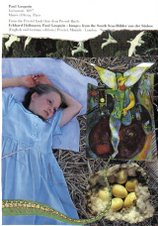
About Me

- Theresa Williams
- Northwest Ohio, United States
- "I was no better than dust, yet you cannot replace me. . . Take the soft dust in your hand--does it stir: does it sing? Has it lips and a heart? Does it open its eyes to the sun? Does it run, does it dream, does it burn with a secret, or tremble In terror of death? Or ache with tremendous decisions?. . ." --Conrad Aiken
Followers
Facebook Badge
Search This Blog
Favorite Lines
My Website
Epistle, by Archibald MacLeish
Visit my Channel at YouTube
Great Artists
www.flickr.com
This is a Flickr badge showing public photos from theresarrt7. Make your own badge here.
Fave Painting: Eden
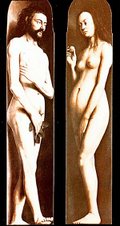
Fave Painting: The Three Ages of Man and Death

by Albrecht Dürer
From the First Chapter
The Secret of Hurricanes : That article in the Waterville Scout said it was Shake- spearean, all that fatalism that guides the Kennedys' lives. The likelihood of untimely death. Recently, another one died in his prime, John-John in an airplane. Not long before that, Bobby's boy. While playing football at high speeds on snow skis. Those Kennedys take some crazy chances. I prefer my own easy ways. Which isn't to say my life hasn't been Shake-spearean. By the time I was sixteen, my life was like the darkened stage at the end of Hamlet or Macbeth. All littered with corpses and treachery.
My Original Artwork: Triptych

Wishing
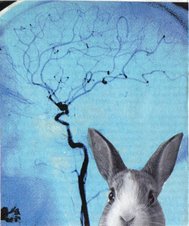
Little Deer
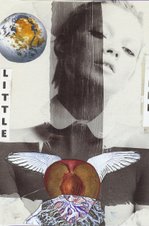
Transformation
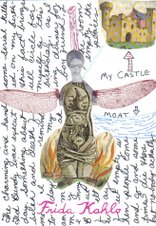
Looking Forward, Looking Back
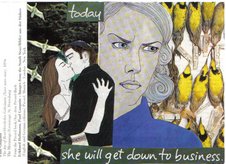
CURRENT MOON
Labels
- adolescence (1)
- Airstream (7)
- Alain de Botton (1)
- all nighters (2)
- Allen (1)
- altars (1)
- Angelus Silesius (2)
- animals (1)
- Annie Dillard (1)
- Antonio Machado (2)
- AOL Redux (1)
- April Fool (1)
- Archibald MacLeish (1)
- arts and crafts (55)
- Auden (1)
- awards (2)
- AWP (2)
- Bach (1)
- Basho (5)
- Beauty and the Beast (1)
- birthdays (1)
- blogs (5)
- boats (2)
- body (2)
- books (7)
- bookstores (1)
- Buddha (1)
- Buddha's Little Instruction Book (2)
- butterfly (4)
- buzzard (2)
- Capote (4)
- Carmel (1)
- Carson McCullers (1)
- cats (15)
- Charles Bukowski (1)
- Charles Simic (2)
- Christina Georgina Rossetti (1)
- church (2)
- confession (1)
- Conrad Aiken (1)
- cooking (5)
- crows (1)
- current events (2)
- D. H. Lawrence (3)
- death (6)
- Delmore Schwartz (4)
- detachment (1)
- dogs (7)
- domestic (3)
- dreams (21)
- Edward Munch (4)
- Edward Thomas (1)
- Eliot (3)
- Eliot's Waste Land (2)
- Emerson (2)
- Emily Dickinson (10)
- ephemera (1)
- Esalen (6)
- essay (3)
- Eugene O'Neill (3)
- Ezra Pound (1)
- F. Scott Fitzgerald (1)
- fairy tales (7)
- Fall (16)
- Famous Quotes (16)
- festivals (2)
- fire (5)
- Floreta (1)
- food (1)
- found notes etc. (1)
- found poem (2)
- fragments (86)
- Frida Kahlo (1)
- frogs-toads (4)
- Georg Trakl (1)
- gifts (1)
- Global Warming (1)
- Gluck (1)
- goats (1)
- Goodwill (1)
- Great lines of poetry (2)
- Haibun (15)
- haibun moleskine journal 2010 (2)
- Haiku (390)
- Hamlet (1)
- Hart Crane (4)
- Hayden Carruth (1)
- Henry Miller (1)
- holiday (12)
- Hyman Sobiloff (1)
- Icarus (1)
- ikkyu (5)
- Imagination (7)
- Ingmar Bergman (1)
- insect (2)
- inspiration (1)
- Issa (5)
- iTunes (1)
- Jack Kerouac (1)
- James Agee (2)
- James Dickey (5)
- James Wright (6)
- John Berryman (3)
- Joseph Campbell Meditation (2)
- journaling (1)
- Jung (1)
- Juniper Tree (1)
- Kafka (1)
- Lao Tzu (1)
- letters (1)
- light (1)
- Lorca (1)
- Lorine Niedecker (2)
- love (3)
- Lucille Clifton (1)
- Marco Polo Quarterly (1)
- Marianne Moore (1)
- Modern Poetry (14)
- moon (6)
- movies (20)
- Muriel Stuart (1)
- muse (3)
- music (8)
- Mystic (1)
- mythology (6)
- nature (3)
- New Yorker (2)
- Nietzsche (1)
- Northfork (2)
- November 12 (1)
- October (6)
- original artwork (21)
- original poem (53)
- Our Dog Buddha (6)
- Our Dog Sweet Pea (7)
- Our Yard (6)
- PAD 2009 (29)
- pad 2010 (30)
- Persephone (1)
- personal story (1)
- philosophy (1)
- Phoku (2)
- photographs (15)
- Picasso (2)
- Pilgrim at Tinker Creek (1)
- Pillow Book (5)
- Pinsky (2)
- plays (1)
- poem (11)
- poet-seeker (9)
- poet-seer (6)
- poetry (55)
- politics (1)
- poppies (2)
- presentations (1)
- Provincetown (51)
- Publications (new and forthcoming) (13)
- rain (4)
- Randall Jarrell (1)
- reading (6)
- recipes (1)
- Reciprocity (1)
- Richard Brautigan (3)
- Richard Wilbur (2)
- Rilke (5)
- river (5)
- river novel (1)
- rivers (12)
- Robert Frost (2)
- Robert Rauschenberg (1)
- Robert Sean Leonard (1)
- Robinson Jeffers (1)
- Rollo May (2)
- Rumi (1)
- Ryokan (1)
- Sexton (1)
- short stories (13)
- skeletons (2)
- sleet (1)
- snake (1)
- Snow (24)
- solitude (1)
- spider (2)
- spring (1)
- Stanley Kunitz (1)
- students (2)
- suffering (4)
- suicide (2)
- summer (20)
- Sylvia Plath (2)
- Talking Writing (1)
- Tao (3)
- teaching (32)
- television (4)
- the artist (2)
- The Bridge (3)
- The Letter Project (4)
- The Shining (1)
- Thelma and Louise (1)
- Theodore Roethke (16)
- Thomas Gospel (1)
- Thomas Hardy (1)
- toys (3)
- Transcendentalism (1)
- Trickster (2)
- Trudell (1)
- Ursula LeGuin (1)
- vacation (10)
- Vermont (6)
- Virginia Woolf (1)
- Vonnegut (2)
- Wallace Stevens (1)
- Walt Whitman (8)
- weather (7)
- website (3)
- what I'm reading (2)
- William Blake (2)
- William Butler Yeats (5)
- wind (3)
- wine (2)
- winter (24)
- wood (3)
- Writing (111)
- Zen (1)




